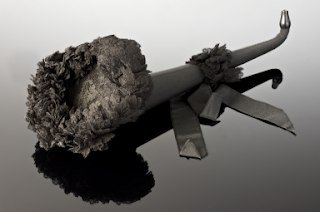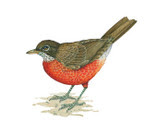 Written by: Rosa Morgan
Written by: Rosa MorganMy career as a physician and surgeon kept bread on my table, but it was my inventions that secured my name, George Merryweather, for posterity. I hereby present a few of the most innovative developments of my time, beginning with one of my own. Behold the Tempest Prognosticator which garnered accolades at the 1851 Great Exhibit. There are twelve bottles of rainwater, each containing a leech within. I've taken special care to arrange my little comrades in a circle, so they may not endure the affliction of solitary confinement. When agitated by an approaching storm, the leeches ascend the tubes, dislodge a whale bone, and trigger a small hammer to strike a bell. It is a most effectual and amusing barometer.
 I'm certain my Mrs. would frown upon having the "Teasmade" in our abode. Though I, with my scientific inclinations, fully appreciate its design. Ingeniously, an alarm clock triggers a switch resulting in a match striking against moving sandpaper, and in turn lighting the spirit stove beneath the kettle. Once the water boils, the steam pressure lifts a hinged flap and the kettle tilts, filling a teapot beneath. Finally, a plate swings over the stove, extinguishing its flames. Brilliant!
I'm certain my Mrs. would frown upon having the "Teasmade" in our abode. Though I, with my scientific inclinations, fully appreciate its design. Ingeniously, an alarm clock triggers a switch resulting in a match striking against moving sandpaper, and in turn lighting the spirit stove beneath the kettle. Once the water boils, the steam pressure lifts a hinged flap and the kettle tilts, filling a teapot beneath. Finally, a plate swings over the stove, extinguishing its flames. Brilliant!
 I've already ordered this hearing trumpet for Granny Merryweather. She is still in mourning for grandfather, and the black ribbons will particularly suit her.
I've already ordered this hearing trumpet for Granny Merryweather. She is still in mourning for grandfather, and the black ribbons will particularly suit her.
 I was certain this medieval looking clog was a torture device or perhaps a tool for aerating the lawn. In truth it is used to trample chestnuts and acorns, thereby separating the nutmeat from the shell.
I was certain this medieval looking clog was a torture device or perhaps a tool for aerating the lawn. In truth it is used to trample chestnuts and acorns, thereby separating the nutmeat from the shell.
I leave my favorite for last: the monocycle, a most stylish manner of transport invented by Rousseau of Marseilles. It could reach frighteningly high speeds of 30 MPH, and this with no gears or steering mechanism!
Ladies and gents, I encourage you to follow your dreams, no matter how preposterous they may seem. Many scoffed at my leech meteorologists, but time will prove they were wrong.
Ambitiously striving for excellence,
George Merryweather



































